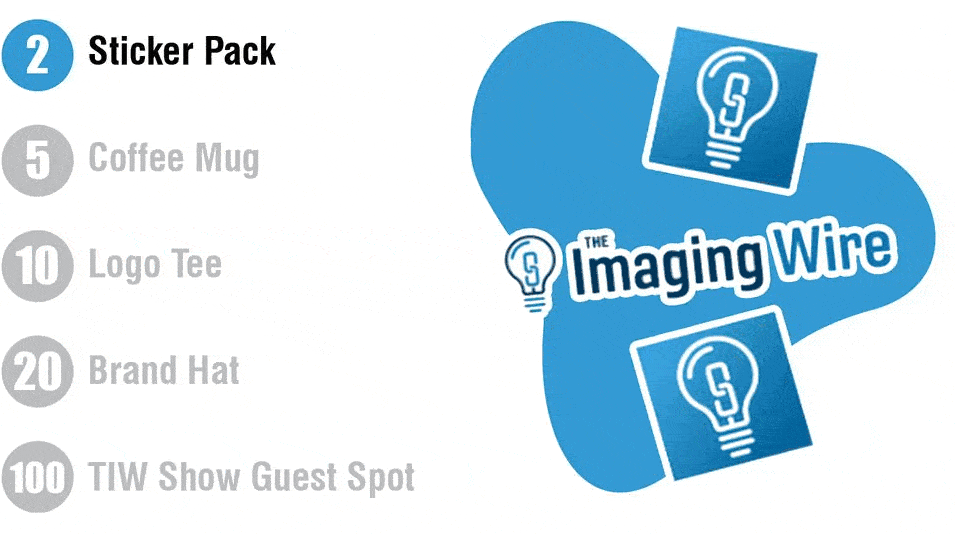|
Moral Distress in Radiology | AI+MRI+DTC=???
March 23, 2023
|
|
|

|
|
Together with
|

|
|
|
“We don’t even know that the benefits outweigh harms for whole body scans in asymptomatic people. Adding in … AI is a Pandora’s box.”
|
|
Dr. Catherine Livingston, Oregon Health Sciences University, on the combination of AI with direct-to-consumer whole-body MRI.
|
|
|
The Imaging Wire Show – How Can Technology Solve Radiology’s Workflow Challenge?
How can new technology tools help radiology solve its workflow challenges? On the latest edition of the Imaging Wire Show, we talked to Matthew Lungren, MD, and Calum Cunningham of Nuance Communications.
|
|

|
|
The rising volume of medical imaging studies isn’t just a data point. It’s causing moral distress among radiologists and is a major systemic cause of the specialty’s burnout epidemic.
Radiology’s problem with burnout is no secret, with a recent analysis disclosing that 54% of all radiologists identify as burned out. Studies have found that a cause of burnout can be moral distress, defined within healthcare as when a clinician knows the right course of action for a patient, but is prevented from taking it due to systemic factors.
In a March 22 study in American Journal of Roentgenology, researchers describe findings from a survey of 93 radiologists on their feelings of moral distress in different clinical scenarios and the impact it had on their careers. In short:
- 98% reported some degree of moral distress
- 48% thought the COVID-19 pandemic influenced their moral distress
- 28% considered leaving their jobs
- 18% actually did leave a job
Several factors contribute to moral distress in radiology:
- Case volumes that are higher than can be read safely
- Higher case volumes that prevent resident teaching
- A lack of action and support among administration
These latter issues lead to burnout in specific ways, the authors wrote. Institutional constraints to providing high-quality care can prompt physicians to spend more time at work. Error rates can also grow during shifts with high study volumes or that last longer than 10 hours. And orders for unnecessary imaging exams can be seen as disregard for professional expertise.
The Takeaway
This study rips the Band-Aid off the burnout problem in radiology, pointing out that inexorably rising imaging volumes rather than bad bosses or lazy colleagues are a root cause, one that’s been exacerbated by the COVID-19 pandemic.
A further implication is that no amount of “self-care” – often prescribed as a solution for burnout – will cure the problem in the long run as long as radiologists will have ever-growing worklists to return to after their sabbaticals and motivational staff meetings. The researchers recommended “urgent action” to address the issue.
|




|
|
Helping Radiologists Overcome the Paradox of Choice
Ready to overcome the worklist paradox of choice? See how GE HealthCare’s Intelligent Workload Manager eliminates case selection decision-making burdens and helps reduce radiologist stress.
|
|
See How Subtle Supports Accelerated MRI
Looking for a way to do faster MRI scans without losing image quality? Learn about the impact that Subtle Medical’s SubtleMR software has on accelerated MRI sequences in this case review image series.
|
|
- AI + MRI + DTC = ??? Clinicians are raising alarm bells over using AI in direct-to-consumer whole-body MRI exams. Whole-body DTC provider Prenuvo is opening a Massachusetts center later this year that will use AI, prompting a skeptical article in the Boston Globe. The story supports AI’s utility for radiologists, but it quotes clinicians who are more skeptical of the technology for DTC imaging. Prenuvo, which raised $70M last year, says it will present papers later this year supporting its approach.
- Kaiser Cops to MRI Accident. Kaiser Permanente has acknowledged that an MRI accident that occurred at a Northern California hospital happened at its Redwood City Medical Center facility. In a statement released to MRI safety expert Tobias Gilk, a Kaiser representative stated that the February 23 accident was an “isolated occurrence.” The statement ends weeks of speculation in the MRI safety community about the location of the incident. Will more details be forthcoming?
- MRI Price Variation: Why do prices for MRI scans vary so much? In a research letter in JAMA Network Open, researchers found that prices for brain MRI were higher at nonprofit and government hospitals compared to for-profit hospitals. Prices also tended to be higher in rural areas, at facilities with more Medicare patients, and at hospitals that contracted with more health plans. The researchers believe that hospital bargaining power could account for the variation.
- DOJ Changes Tune on Change Deal: The U.S. Department of Justice dropped its opposition to Change Healthcare’s acquisition by UnitedHealthcare Group and its Optum subsidiary. The DOJ and the states of Minnesota and New York had opposed the deal, but on Monday they filed a court brief that effectively ends their opposition. Having already completed the acquisition, Change and Optum are now free to continue their integration.
- Patients Want Rapid Test Access: Patients want access to test results quickly, even if it’s before their healthcare provider. In a JAMA Network Open study, researchers from Beth Israel Deaconess Medical Center found that of 8,139 patients who got their results through online portals, 95.7% preferred the portal and only 7.5% were anxious after getting abnormal test results before their provider. The findings support the use of online portals for communicating images and test results.
- AI-Powered 7T MRI: A site in Germany is the first in Europe to install Siemens Healthineers’ next-generation 7-tesla MRI scanner. The University of Magdeburg installed the Magnetom Terra.X Impulse Edition, a new generation of Siemens’ 7T technology that leverages AI to boost image quality. The scanner will be used for brain research, and the deal underscores growing use of 7T MRI for clinical and research applications.
- AI Cuts Gadolinium Dose: German researchers reduced gadolinium contrast dose by using AI generative adversarial networks to create synthesized breast MRI images with 25% of gadolinium. In a study of 5,086 patients in Radiology, radiologists were unable to differentiate between real full-dose images and synthesized low-dose scans. Gadolinium has been linked to a number of health issues in patients, so AI could offer a solution to reduce exposure.
- Nuance Brings GPT to DAX Express: Generative AI is making its biggest healthcare splash yet after Microsoft-owned Nuance Communications announced DAX Express with GPT-4 integration. DAX Express is able to draft clinical notes from patient-provider conversations in seconds by eliminating the need for a human quality checker before clinicians can upload the notes to the EHR. Nuance has a huge head start in the race given that over 75% of US hospitals are already using its technology.
- Prior Auths Leading to Care Delays: The 2022 AMA Prior Authorization Physician Survey revealed that practices are completing more prior authorizations than last year and seeing more care delays as a result. Over 88% of the 1k physicians surveyed described the process as a high burden, with practices completing an average of 45 prior auths per physician weekly. The majority of physicians (86%) felt that prior authorizations lead to higher utilization of healthcare resources – pretty much the exact opposite of what they were designed to prevent.
- Riverain Expands Deal with Siemens: Riverain Technologies is making its ClearRead X-Ray Bone Suppression software available throughout the U.S. and Europe via the Siemens Healthineers syngo.via OpenApps Digital Marketplace. Riverain has deals with Siemens and Philips to offer the software as an option on chest X-ray systems, but this new agreement adds the ability to offer it to customers regardless of modality vendor. Riverain has been focusing on platform providers recently, such as in its deal with Ferrum Health.
- Enlitic Adds Yamada to Board: Enlitic has added Riichi Yamada to its board of directors. Yamada has 25 years of experience in the chemicals, plastics, and life sciences. He is CEO and president of Clairvo Technologies, a subsidiary of Japanese conglomerate Marubeni, which has invested in Enlitic. In late 2022, Clairvo signed on to commercialize Enlitic’s software in Japan, and this week the companies said the software has been installed at over 50 sites in the country.
|
|
Annalise.ai’s AI Confidence Bar
Curious how certain your AI is about its own finding? Annalise.ai’s confidence bar displays the likelihood of each finding and the AI model’s level of certainty, helping clinicians perform their interpretations with greater confidence.
|
|
How Will the Cloud Support Patient-Centered Care?
The cloud will play a foundational role for a variety of healthcare applications, but perhaps one of its biggest impacts will be in supporting patient-centered care. Explore how the cloud will prove critical for ensuring patient-centered care in this editorial by Intelerad’s Morris Panner.
|
|
- How can you keep your data lake from turning into a data swamp? Developing a strong data governance policy is one way to enable your health system to gain valuable clinical insights from your data, according to this white paper from Enlitic.
- See why radiologist Dr. Eleanna Saloura called Arterys’ Lung AI solution “a fast and reliable second opinion” for chest CT lung nodule analysis and tracking, allowing “more accurate diagnostic and treatment decisions.”
- Radiology faces numerous challenges to more efficient workflow, from the siloed nature of healthcare enterprises to mundane tasks that are ripe for automation. In this Imaging Wire Show, we talked to Dr. Matthew Lungren and Calum Cunningham of Nuance Communications about how the company’s technology can help.
- Merative’s Merge Imaging Solutions had a big Best in KLAS 2023, winning the Cardiology and Hemodynamics categories, while scoring second place honors in the Large PACS, Universal Viewer, and VNA categories. Merge Cardio previously scored Best in KLAS for six consecutive years, while Merge Hemo has been ranked #1 for 10 years.
- Check out our Cardiac Wire publication’s Q&A with Us2.ai president and co-founder Yoran Hummel, discussing how his career as a sonographer led him to echo AI, and how Us2.ai’s upcoming automated strain analysis feature brings the company even closer to democratizing echo.
- Easy access to patient records, reduced inefficiencies and costs, improved collaboration and compliance, and enhanced security. These are just a few of the benefits of Novarad’s enterprise imaging solution detailed right here.
- Point-of-care MRI is being used in real-world situations to impact patient care decisions. In this webinar, Hyperfine Senior Medical Director Dr. Chip Truwit discusses four cases in which portable MRI was used to answer clinical questions in the intensive care unit.
- When the VA adopts your technology nationwide, you know you’ve been making an impact. That’s exactly what’s happening with Riverain Technologies’ ClearRead CT, which will be implemented across the VA Lung Precision Oncology Program (22 hub and 87 spoke locations).
- After setting ambitious regulatory and commercialization goals, Lunit leveraged CARPL.ai’s platform and operational guidance to complete the clinical trials needed for its INSIGHT CXR and MMG AI tools’ FDA clearances.
- United Imaging Healthcare is excited to be celebrating its 12th anniversary! United has achieved significant growth, and the company could not have done it without the support of its partners. United looks forward to continuing its partnerships for many years to come.
- This presentation from Dr. Brian Goldner, MD details UC Davis Sacramento’s experience with Canon’s Ultra High Resolution CT and how it can be applied to cardiothoracic interpretations.
- This Blackford Analysis video details how imaging AI can improve radiology efficiency and patient care, and discusses the key role that AI assessments and curation plays in achieving these improvements.
|
|
|
Share The Imaging Wire
|
|
Spread the news & help us grow ⚡
|
|
Refer colleagues with your unique link and earn rewards.
|

|
|
|
|
Or copy and share your custom referral link: *|SHAREURL|*
|
|
You currently have *|REFERRALS|* referrals.
|
|
|
|
|